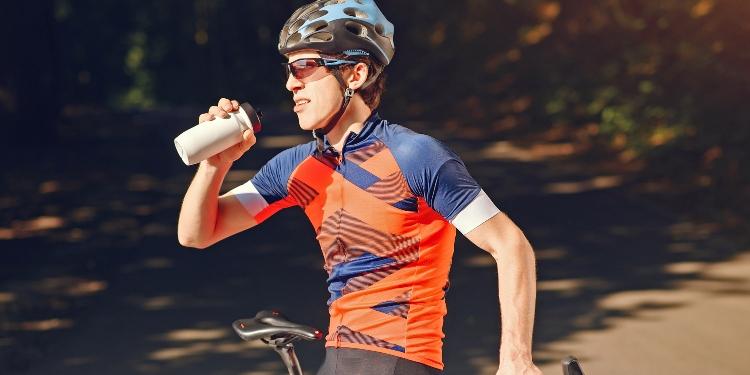
What is the best diet for a cyclist?
Looking to improve your performance? Discover how nutrition can make a difference in your training and competitions.
Nutrition is a crucial factor in a cyclist's performance. A cyclist's diet should be varied, balanced, and adapted to the energy needs of their training and competitions. In this article, we will give you tips that will help you have an adequate diet to get the most out of your training.
Carbohydrates, the main source of energy
Carbohydrates are the main source of energy for the body during cycling. Carbohydrates are converted into glucose, which is the energy the body uses. It is important to include enough carbohydrates in your diet to maintain energy levels during training.
You can find carbohydrates in different foods, such as:
- Whole grain bread.
- Pasta.
- Rice.
- Potatoes.
- Fruits.
- Vegetables.
It is recommended to consume at least 6 grams of carbohydrates per kilogram of body weight per day. For more intense training, you can increase this amount.
Proteins for muscle maintenance and repair
It is important to include enough protein in your diet to help your muscles recover after exercise. Proteins also help you build muscle mass.
The main sources of protein are:
- Meat.
- Fish.
- Eggs.
- Dairy.
- Legumes.
- Nuts.
It is recommended to consume at least 2 grams of protein per kilogram of body weight per day.
Healthy fats for energy and health
Healthy fats are important for energy and overall health. These fats can be found in foods such as olive oil, avocado, nuts, and fatty fish. The recommended intake of healthy fats for cyclists is at least 20% of their daily calories.
Adequate hydration for optimal performance
Hydration is crucial for improving performance. Cyclists lose water and electrolytes through sweat during exercise, which can affect performance if not adequately replaced.
It is recommended that you consume between 750 ml and 1 liter of water per hour of exercise. Additionally, it's important to replace lost electrolytes during sweat. According to experts, you should consume 450-1200 mg of sodium every 60 minutes to keep electrolyte levels balanced.
Snacks and quick meals for cycling
You may also need snacks and quick meals to maintain your energy levels during workouts and competitions. Energy bars are a popular option.
Tips for a cyclist's diet
To ensure a cyclist's diet is adequate, it's important to consider the following tips:
- Eat regularly: it's important not to skip meals and eat regularly to maintain energy levels and avoid fatigue during exercise.
- Vary your diet: it's recommended to eat a variety of foods to obtain all necessary nutrients. Avoid restrictive diets and opt for a varied and balanced diet.
- Consume carbohydrate-rich foods before exercise: carbohydrates provide the necessary energy for exercise, so it's recommended to consume them before exercise.
- Consume protein after exercise: protein is necessary for recovery and muscle development, so it's recommended to consume protein-rich foods after exercise.
- Hydrate adequately: it's essential to stay well hydrated during and after exercise to avoid fatigue and exhaustion.
We hope that after reading this article, you have a much clearer understanding of what constitutes a proper diet for a cyclist. Remember that taking these tips seriously will help you improve your performance as a cyclist and achieve better results.